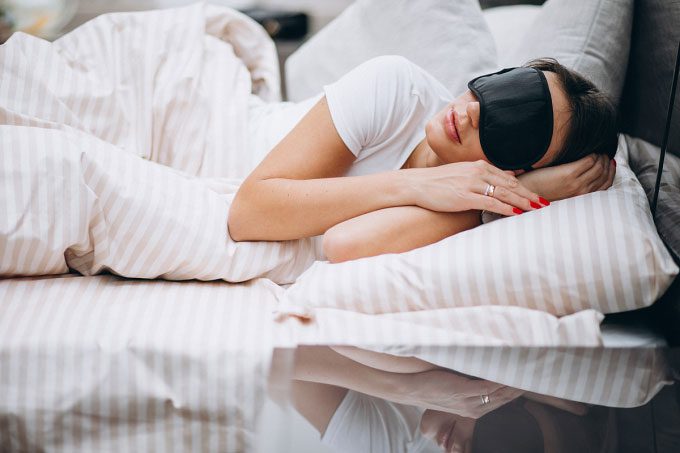The sensation of falling into a void and abruptly waking up while sleeping is known as hypnagogic jerks, occurring in 60-70% of the population.
Startling awake during deep sleep is a common phenomenon. Some individuals report waking up due to the feeling of suddenly falling into a deep chasm or from a tall building. Others perceive loud noises or blinding lights in their minds. Many experience sudden muscle spasms without prior warning.
Scientists refer to this as hypnagogic jerks, characterized by brief, sudden, and intense muscle contractions affecting parts or the entirety of the body. Arms and legs are the most commonly affected. Some individuals may emit loud sounds involuntarily. These muscle jerks typically occur in the first stage of the sleep cycle when people are not in deep sleep.
“This can cause you to startle awake before you have the chance to fall asleep,” explains Raj Dasgupta, an associate professor of clinical medicine at the Keck School of Medicine at the University of Southern California.
Chris Breitigan, a 29-year-old podcast producer from Huron, Ohio, shares that he sometimes wakes up from a rather bizarre experience. “I’m about to fall asleep and feel as though someone is tickling me. It starts at my back and moves down to my legs, causing me to jump,” he recounts.
According to scientists, this experience can be accompanied by rapid heartbeat, shortness of breath, sweating, vivid dreams, or hallucinations. Hypnagogic jerks can occur in both men and women of all ages and are generally not a cause for concern. Associate Professor Dasgupta states that nearly 70% of the population experiences muscle jerks at some point in their lives.
“Medically, sleep jerks are classified as a form of rapid, involuntary movement. A typical example of muscle jerking is the phenomenon of hiccups,” he explains.
Researchers estimate that 60-70% of people recall their experiences if this condition occurs infrequently. However, frequent jerking can lead to feelings of anxiety and insomnia, particularly for those who hallucinate falling into an abyss or from a tall building before waking up.

A woman sleeping. (Photo: Freepik).
Experts are not exactly sure why people experience jerking while sleeping, but they believe that excessive caffeine consumption and physical or mental stress can increase the frequency of these jerks.
“Fatigue or lack of sleep can also contribute to this condition. However, most muscle jerks during sleep occur randomly in healthy individuals,” states Associate Professor Dasgupta.
He notes that being startled awake while sleeping is usually harmless and doesn’t require treatment. However, he advises individuals to seek medical advice if they experience symptoms such as frequent jerking during the day, injuries from jerking while asleep, biting their tongue, or bedwetting while asleep.
“Being startled awake can sometimes be mistaken for epilepsy. Although they may seem similar, there are some key differences. Epilepsy is a serious condition that can arise from an underlying medical issue,” Dasgupta explains.
On the other hand, sleep jerks are a benign phenomenon unrelated to any health condition or concern. They primarily cause inconvenience and short-term fatigue.
However, for some individuals, the condition of being startled happens continuously over several nights, leading to fatigue and insomnia. Associate Professor Dasgupta recommends reducing caffeine and alcoholic beverages, avoiding coffee and alcohol in the afternoon and evening. Alcohol can initially induce drowsiness, but once the body metabolizes it, you may awaken, particularly in the middle of the night. This can increase fatigue and lead to more startling.
Associate Professor Dasgupta suggests practicing meditation and mindfulness before bedtime. Relaxing the body helps make the transition into sleep easier, reducing muscle jerking.
“One of the best ways to help you fall asleep is to focus on your breathing. Most exercises require slow and deep breathing,” he advises.


















































